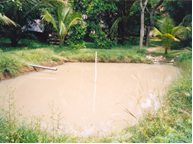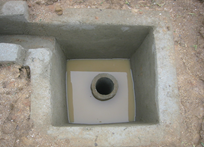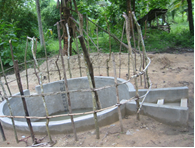Enhancing the Biodiversity through Rain Water Harvesting and Rain Water Recharging
| Project Area | Kurundamkulama, Mihintale in Anuradhapura District |
|---|---|
| Duration | April 2003 to July 2004 |
| Funded by | Centre for Poverty Elevation (CEPA) |
| Objectives | To examine the effectiveness of rain water harvesting methods and conservation in crop production |
Output of the Project (at the completion)
- Five training workshops on advocacy were completed and through that eighteen partner organizations in the project area were trained in biodiversity conservation.
- Five awareness creation programs have been conducted on agricultural biodiversity conservation for community & school children.
- To promote agro-forestry in home gardens, 10 awareness programs on agro-forestry systems and their benefits were conducted to the community.
- 25 home gardens in the project area were selected through a technical assessment and are being developed as demonstration multi layered home garden. fruits and timber plants, vegetable seeds, medicinal plants and technical knowledge and assistance was given to these beneficiaries to develop the home garden.
- Out of these 25 home gardens 16 beneficiaries were given both modern and traditional rainwater harvesting systems.
 Pathaha - The traditional way of collecting & recharging rain water | |
 Artificial Recharging System |  |
Research on ground water recharging with RWH
- The recharging structures experimented here are the traditional water “Pathaha”, bore hole and well. 3 types of ground water recharging were constructed in 9 sites. Ground water levels of adjoining wells and recharging structures are taken daily. Also rainfall of the area, ambient temperature and relative humidity using wet and dry bulb thermometer, evaporation rate readings (using US WB type open pan evaporate meter) are been taken to verify the effect of ground water recharging structures on recharging the ground water table.
- To popularize biodiversity conservation in home gardens by promotion of agro forestry systems and rainwater harvesting practices posters, leaflets, T-shirts, caps, stickers and book about home gardening published by LRWHF distributed among the stakeholders
